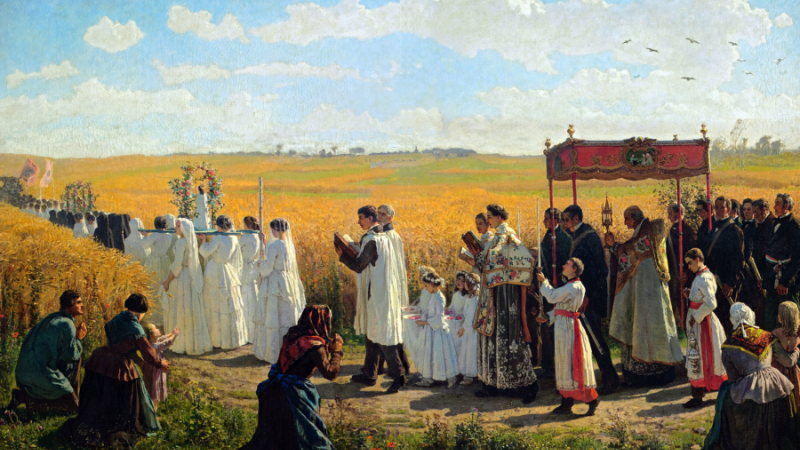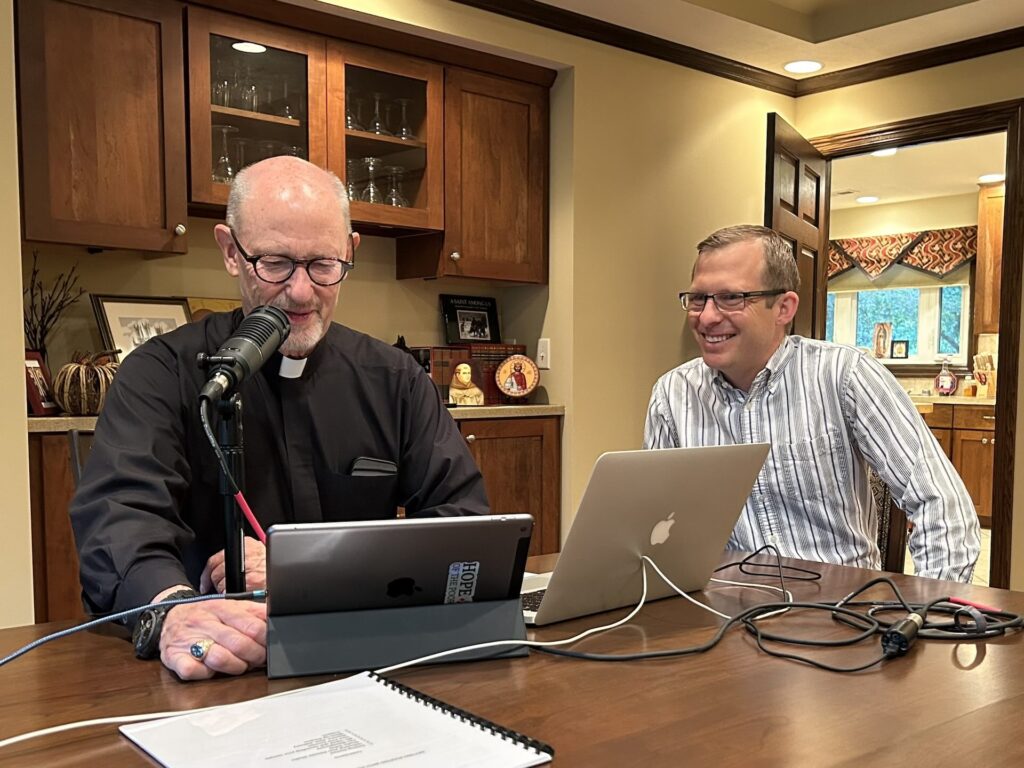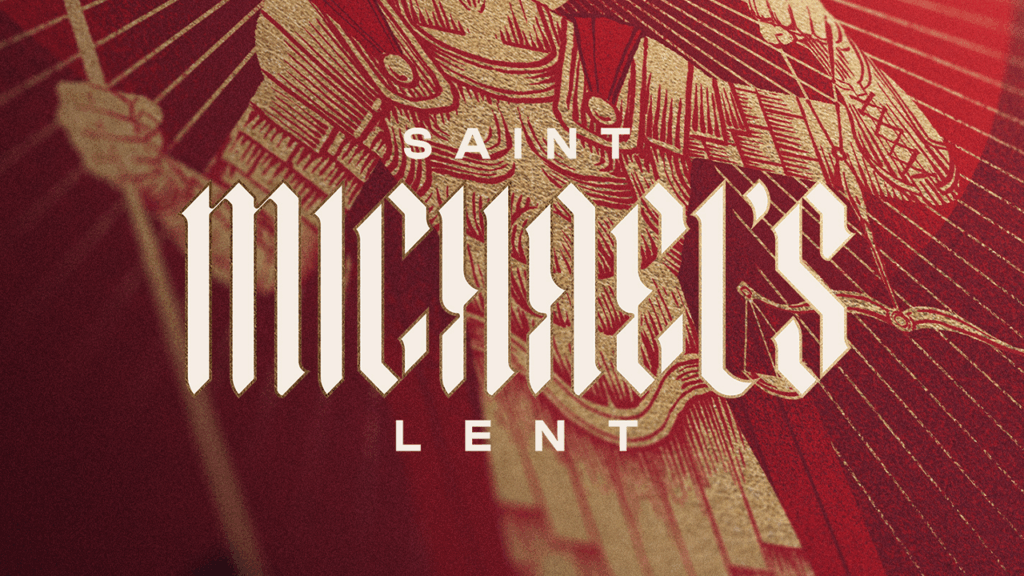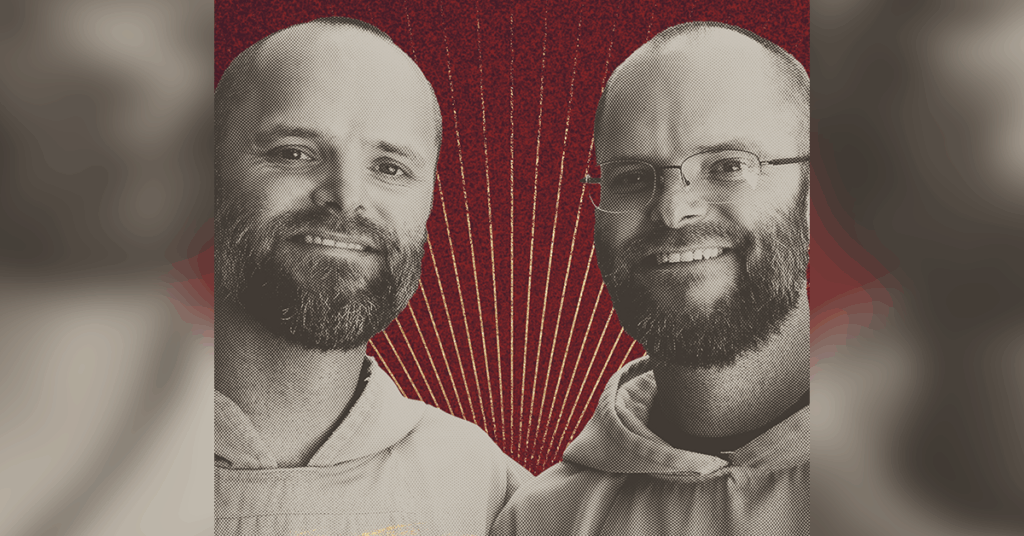Ember Days are among the oldest traditions of the Church’s calendar. The Romans marked the beginning of new seasons with particular times of celebration and prayer. Even more pertinently for us, the cycle of Jewish feasts sanctified the year and marked the harvest times with sacrifice. St. Leo the Great held that Ember Days went back to apostolic times, although Pope Callixtus (who reigned 217-22) is given credit for formalizing their observance. Rather than celebration, they focused on thanksgiving and penance, thanking God for his providence in providing for our needs through the fruits of the earth and fasting to show dependence upon God as the highest good.
Because they were linked to the seasons, they were celebrated four times a year, and in Latin they are simply known as the quatuor tempora (four times). They involve prayer and fasting on a Wednesday, Friday and Saturday, and are marked during the middle of Advent (following St. Lucy’s feast on December 13), the first full week of Lent, the week following Pentecost, and finally the middle of September (following the feast of the Holy Cross on September 14th). They also became days focused on praying for priests, because ordinations often happened in conjunction with these days.
One of the greatest liturgical writers of the last two hundred years, Venerable Dom Prosper Gueranger, described the purpose of these days: “Holy Church comes claiming from her children the tribute of Penance, which, from the earliest ages of Christianity, was looked upon as a solemn consecration of the Seasons. . . . The beginnings of the Winter, Spring, and Autumn quarters were sanctified by abstinence and fasting, and each of them, in turn, has witnessed heaven’s blessing falling upon their respective three months.” These days seek to bless and sanctify the year by drawing Christians together in prayer and penance.
What is their status? The Church has not gotten rid of Ember Days, even if they’ve been eclipsed, but has left their celebration to the discretion of bishops. The United States bIshops issued a document, “Pastoral Statement on Penance and Abstinence” on November 18, 1966, which explained their approach:
“17. Vigils and Ember Days, as most now know, no longer oblige to fast and abstinence. However, the liturgical renewal and the deeper appreciation of the joy of the holy days of the Christian year will, we hope, result in a renewed appreciation as to why our forefathers spoke of ‘a fast before a feast.’ We impose no fast before any feast-day, but we suggest that the devout will find greater Christian joy in the feasts of the liturgical calendar if they freely bind themselves, for their own motives and in their own spirit of piety, to prepare for each Church festival by a day of particular self-denial, penitential prayer and fasting.”
In other words, just as the Church has left their celebration to bishops, the bishops in the United States have allowed Catholics to embrace these days voluntarily as a pious practice.
There are a number of reasons why it makes sense for us to observe these days. First, we have become out of touch with the rhythm of the seasons in our technological age. We take our food for granted, and the Ember Days help us to stop and thank God for the bounty he has given us. Second, Catholics have become somewhat lax in the observing of penance, with only two days of light fasting required for the whole year. Dom Gueranger spoke of a “tribute of penance” we should offer, and these days help us to offer a fitting sacrifice of praise and penance to God. Finally, as these days have been connected to clergy, they offer us a great opportunity to pray for our priests, their sanctification, and for vocations.
Be the Renewal. Download the App today!
Dr. Staudt holds a Ph.D. in systematic theology from Ave Maria University and B.A. and M.A. in Catholic Studies from the University of St. Thomas (St. Paul, MN). He serves as Director of Content for Exodus and as Visiting Associate Professor at the Augustine Institute in Denver. He was previously the Associate Superintendent for the Archdiocese of Denver. He has founded a Catholic school and served as a DRE in two parishes and as Director of Catholic Studies at the University of Mary. He is the author of How the Eucharist Can Save Civilization (TAN), Restoring Humanity: Essays on the Evangelization of Culture (Divine Providence Press) and The Beer Option: Brewing a Catholic Culture Yesterday & Today (Angelico Press). His editing experience includes six years as the managing editor of the journal Nova et Vetera and the books Renewing Catholic Schools: How to Regain a Catholic Vision in a Secular Age (Catholic Education Press) and The University and the Church: Don J. Briel’s Essays on Education (Cluny Media).





